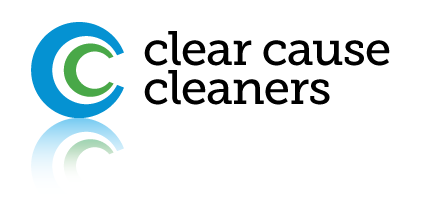In previous posts, I have mentioned the benefits of the sterilizing and disinfecting properties of vinegar and received some comments that encouraged me to clarify my position on the definition of disinfectant.
In order to obtain the legal term "disinfectant" a product needs to kill 99.999% of bacteria. Only then is it allowed to make advertising claims of being a "disinfectant". Vinegar kills 80-90% of bacteria and is not considered a legal disinfectant, but it definitely has disinfecting properties.
Let's say you accidentally cleaned a counter with a stinky cloth and spread the stink to your counter. Oops. You can kill most of the bacteria causing the stink with vinegar. As a homeowner, this is a useful tool to have in your arsenal, as you likely already have vinegar in your house. I would not, however, suggest preparing food directly on the kitchen counter after cleaning with vinegar, as there is still enough bacteria on the counter to make the preparation unsanitary. If you want to disinfect a cutting board, for example, vinegar will not cut it and you need a proper disinfectant to remove all of the bacteria before food preparation.
Now let's consider why we need disinfectants. When cleaning, it is useful to have a disinfectant to clean heavy bacteria covered areas like the toilet, contact points like door handles and faucets, and kitchen counters. But there are two schools of thought on this. The first is that coming into contact with bacteria does not harm you. This school believes that the more you come into contact with bacteria in small doses, the more of a natural resistance you build to it. We come into contact with bacteria and viruses every day, but we have natural defence mechanisms that protect us like our immune system. If you agree with this school, then vinegar should be a cheap, available option to take care of most of your disinfecting concerns barring food preparation or food storage needs.
The other school of thought is that all bathroom and kitchen bacteria are harmful and could cause illness. Perhaps you are moving into a new home and want all traces of the old occupants out, or perhaps you have small children and are concerned with their ability to fight off bacteria. Whatever the reason, you are looking for a proper, industrial strength disinfectant to kill 99.999% of bacteria. For these needs, I highly recommend Benefect. It is a highly effective, natural disinfectant and fungicide. Companies use it for mold remediation and for cleaning up after natural disasters like fires and floods. The active ingredient is thyme oil. Thyme is a plant with anti-bacterial, anti-viral and anti-fungal properties. Benefect does not need any warnings or training to handle it, which is also a telling factor for how natural a product is. Clear Cause Cleaners uses Benefect for areas in the home that need disinfecting as well as areas that have the possibility for mold growth like window tracks, or showers.
To sum up, if you are looking for a cheap household product with disinfecting properties, I suggest vinegar. If you are looking for an industrial strength disinfectant, I suggest Benefect.


